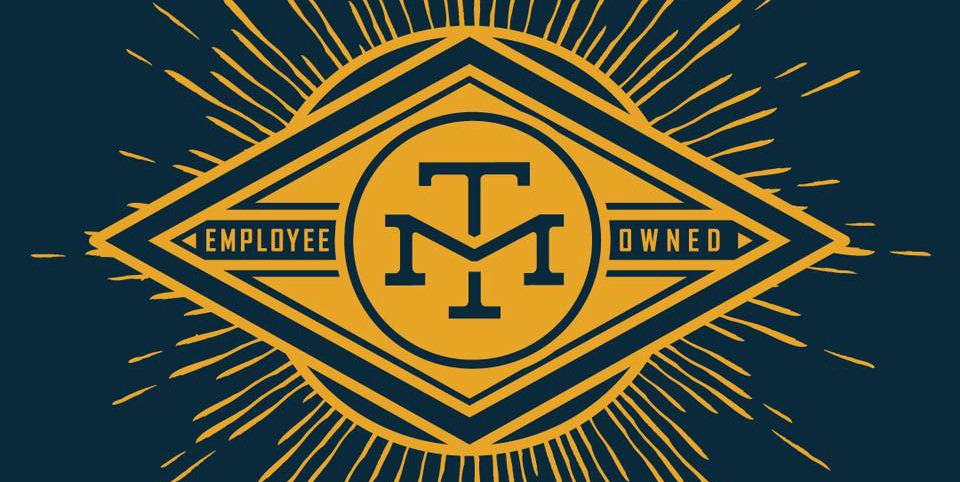Fridays have gotten really interesting lately when it comes to beer news. Whether it’s the Wicked Weed deal being announced on a Friday or the more recent The High End video response to the Brewers Association’s new independence logo that was released this past Friday, it seems like big news flows at the start to the weekend.
Today was no different when beloved San Diego brewery, Modern Times, announced the sale of the brewery. Jacob McKean, CEO, and founder of Modern Times, has always been a staunch indie beer supporter and is never afraid to speak out against big beer and why independence matters. That’s why my heart stopped when I read the teasing headline today from Marketwatch that Modern Times sold, but I was just as quickly appeased when it became clear that they sold not to big beer or an investment group, but they sold to their employees. Mckean explained why they went this route for growth in the Modern Times blog:
It ticked every box for us: achieving an outstanding return for our investors, maintaining our independence, rewarding the employees who have made our success possible, enhancing the collaborative culture that’s so vital to the company, and creating a sustainable ownership structure that will replace me when I’m ready to move on. And there’s a massive tax benefit, too, which means more money for growth and efficiency improvements. Oh, and we formed a new bank relationship as part of this deal that gives us access to vastly more financing than we had before. No other options came close to offering all of that.
While Modern Times is the first employee-owned CA brewery, it now joins the ranks of Harpoon, Switchback, New Belgium, Odell, Deschutes, and Left Hand Brewing who all set up an ESOP (Employee Stock Ownership Plan) with their employees. In the Modern Times deal, employees immediately get 30% in stock in the company with a plan to make that percentage 100%, in time.
According to Market Watch:
Employees get individual shares, but have to spend a certain number of years with the brewery before receiving full, vested rights to those shares. Once that happens, however, they can use those shares to retain a voting interest in the company’s future, or simply cash out through the company or an outside buyer.
While selling to your employees is one way to “keep it in the family,” it doesn’t necessarily mean that the brewery will never sell. In fact, Full Sail Brewing, from Oregon, set up an ESOP and the employees decided to sell to a private equity firm in 2015 and return to regular employee status. When researching an ESOP as a viable means of expansion, Mckean spoke with many of the other breweries who had been through this process and believes that Modern Times won’t have the same issues that Full Sail did.
What I learned from Full Sail is that if the employees are not passionate about what the company makes and how it operates, they won’t see themselves as having a future there. Even a 100% ESOP does not have to offer any meaningful governance or management role to employees, but the consequence of doing that is that the company’s owners aren’t invested in the company’s direction. That’s a formula for a bad culture, which can lead to a sale. We plan to do the opposite.
What Are The Benefits?
While ESOPs aren’t a viable option for every brewery, there are some clear benefits to investing in your employees.
- Employee Buy-In/Attraction/Retention
Many craft brewery employees already feel a lot of ownership in their brewery’s brand and future. Most breweries start out as incredibly small businesses and the growth happens because of the day in, day out hard work that the small number of employees put into the business. By giving these employees a piece of the pie, it not only created great incentive to do right by the company, but it gives them a say in how the company is run. This is attractive to both employees and prospective employees and can create an incredibly strong company culture of commitment.
- Maintaining Independence
With so many options for growth out there, it’s refreshing to see a company not sell out to Big Beer or a large private equity firm. In fact, Mckean told Market Watch that he felt it was important to set an example for up-and-coming breweries about the “true meaning of independence, collaboration, and business ethics.” That’s called putting your money where your mouth is. It makes you wonder about all of the benefits extolled by formerly independent breweries (their newfound ability to grow, gain capital and reach new markets) and how these goals could have been met through different means.
- Controllable Liquidity
This is an interesting benefit. Basically, it means that the rest of the investors (now the employees) have a greater ability to retain ownership of the brewery if there is an investor (or investors) that want to cash out. This allows for greater flexibility for people who want out while maintaining greater stability for the people who want to stay in.
In the end, we are stoked for the Modern Times employees and from what Mckean says, it sounds like he’s pretty stoked on his employees too:
The people who work at Modern Times are our single most significant competitive advantage. Investing in motivating them, retaining them, and attracting more people like them is the smartest strategic play we could make.
Hopefully, other breweries who are looking to grow will take the time to really look at all the options for growth and see if an ESOP would be right for them before they go the sell-out route.
Cheers to Modern Times!

